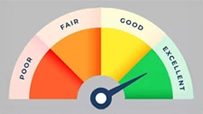Understanding the Role of Recurring Deposits in Corporate Finance
September 03, 2025

Building a secure financial future is a goal that many individuals and businesses strive to achieve. One way to accomplish this is by investing in recurring deposits (RDs). RDs not only help create disciplined saving habits but also provide an ideal way to build a corpus for the future.
In this blog post, we will delve into the basics of recurring deposits and explore their role in corporate finance.
What are Recurring Deposits?
Recurring deposits are financial instruments where a company deposits a fixed amount of money at regular intervals, typically monthly, into a designated account for a specified period.
Unlike fixed deposits, which require a lump sum upfront, recurring deposits allow businesses to plan their savings systematically, making them a flexible and manageable option for corporate finance.
The Role of Recurring Deposits in Business Savings
In the context of business savings, recurring deposits provide a disciplined approach to setting aside funds. For companies, this can be particularly advantageous in several ways:
- Predictable Returns: Recurring deposits offer predictable returns on investment, as the interest rate is fixed for the entire deposit period. This stability helps companies forecast their financial outcomes more accurately.
- Liquidity Management: By investing in recurring deposits, businesses can effectively manage their liquidity. Since these deposits have a fixed tenure, companies can align their deposit maturity with anticipated financial needs, ensuring that funds are available when required.
- Risk Mitigation: Compared to more volatile investment options, recurring deposits are low-risk. They offer a safe haven for excess cash that a company wants to preserve while still earning interest.
Enhancing Corporate Investment Strategies
While recurring deposits may not offer the high returns associated with more aggressive investment options, they play a crucial role in a balanced corporate investment strategy:
- Capital Preservation: For companies focused on preserving their capital, recurring deposits provide a secure and stable way to grow their funds without exposing them to high risk. This is especially important for firms looking to maintain a conservative investment approach.
- Short to Medium-Term Goals: Recurring deposits are ideal for companies aiming to meet short to medium-term financial goals. By scheduling deposits to mature at key times, businesses can plan their investments and expenditures more effectively.
- Complementary Investment Tool: Businesses often use recurring deposits alongside other investment vehicles. For instance, while they may invest in higher-risk assets for long-term growth, recurring deposits can serve as a stable component of their investment portfolio, offering a reliable return.
Realistic Scenarios and Situations
To help illustrate the practical application of recurring deposits in corporate finance, let's explore some relatable scenarios:
Scenario 1: Startup Funding
A tech startup is looking to raise funds for product development. However, traditional
funding options like venture capital or loans come with high-interest rates and equity dilution. By utilising recurring deposits, the startup can attract investors who are seeking stable returns while supporting innovative ideas.
Investors can contribute a fixed amount every month towards the startup's recurring deposit for a predetermined period. At the end of the tenure, the accumulated funds can be used to fuel product development.
Scenario 2: Cash Flow Management
A small manufacturing company experiences seasonal fluctuations in demand and cash flow. During peak seasons, they generate surplus funds that are not immediately required. Instead of letting these idle funds sit in a regular savings account earning minimal interest, the company decides to invest them in recurring deposits.
This ensures that their surplus funds earn higher returns while remaining easily accessible during lean periods when cash flow is tight.
Final Thoughts
Recurring deposits play a valuable role in corporate finance by enhancing business savings and contributing to a well-rounded investment strategy. They provide companies with a secure and predictable way to manage excess cash, plan for future financial needs, and mitigate risk.
Start small, dream big! Invest in Ujjivan Small Finance Bank’s Recurring Deposit and enjoy higher interest rates! Save for your long- and short-term goals with our RD and live a stress-free financial life. Start investing with just ₹100!
Disclaimer:
The contents herein are only for informational purposes and generic in nature. The content does not amount to an offer, invitation or solicitation of any kind to buy or sell, and are not intended to create any legal rights or obligations. This information is subject to updation, completion, amendment and verification without notice. The contents herein are also subject to other product-specific terms and conditions, as well as any applicable third-party terms and conditions, for which Ujjivan Small Finance Bank assumes no responsibility or liability.
Nothing contained herein is intended to constitute financial, investment, legal, tax, or any other professional advice or opinion. Please obtain professional advice before making investment or any other decisions. Any investment decisions that may be made by the you shall be at your own sole discretion, independent analysis and evaluation of the risks involved. The use of any information set out in this document is entirely at the user’s own risk. Ujjivan Small Finance Bank Limited makes no representation or warranty, express or implied, as to the accuracy and completeness for any information herein. The Bank disclaims any and all liability for any loss or damage (direct, indirect, consequential, or otherwise) incurred by you due to use of or due to investment, product application decisions made by you on the basis of the contents herein. While the information is prepared in good faith from sources deemed reliable (including public sources), the Bank disclaims any liability with respect to accuracy of information or any error or omission or any loss or damage incurred by anyone in reliance on the contents herein, in any manner whatsoever.
To know more about Ujjivan Small Finance Bank Products Visit:"https://www.ujjivansfb.in"
All intellectual property rights, including copyrights, trademarks, and other proprietary rights, pertaining to the content and materials displayed herein, belong
to Ujjivan Small Finance Bank Limited or its licensors. Unauthorised use or misuse of any intellectual property, or other content displayed herein is strictly prohibited and the same is not intended for distribution to, or use by, any person in any jurisdiction where such distribution or use would (by reason of that person’s nationality, residence or otherwise) be contrary to law or registration or would subject Ujjivan Small Finance Bank Limited or its affiliates to any licensing or registration requirements.
FAQs
1. How often are the interest rates for recurring deposits updated?
Interest rates for recurring deposits may vary based on market conditions and bank policies. It is advisable to check with the bank for the most updated rates.
2. Can businesses withdraw their recurring deposit before the maturity date?
Yes, businesses can withdraw their RD before maturity; however, this may result in a penalty or loss of accrued interest.
3. Can businesses take loans against their recurring deposits?
Some banks offer the option of availing loans against recurring deposits as collateral. This can be a convenient way for businesses to access funds without breaking their investments.
4. Can businesses invest in multiple recurring deposits simultaneously?
Yes, businesses can invest in multiple RDs with different banks simultaneously. This allows them to diversify their investment portfolio further.
5. Is it possible to modify the monthly instalment amount of a recurring deposit?
In most cases, once a recurring deposit is set up, the monthly instalment amount cannot be modified. It is crucial to determine the right instalment amount before opening the RD account.
6. Are recurring deposits suitable for long-term financial goals?
While recurring deposits are commonly used for short-term goals, they can also be suitable for long-term financial goals depending on the tenure and interest rates offered.
7. How secure are recurring deposits?
Recurring deposits are considered one of the safest investment options as they are offered by banks and regulated financial institutions.
8. Can businesses open recurring deposit accounts for their employees?
Yes, businesses can open recurring deposit accounts for their employees as part of their employee benefit programmes.
9. Can businesses opt for auto-renewal of recurring deposits?
Yes, many banks offer auto-renewal facilities for recurring deposits. This allows businesses to seamlessly continue their investments without any manual intervention.
10. Can businesses avail of any tax benefits through recurring deposits?
Businesses may not directly avail tax benefits from recurring deposits; however, they can explore other investment options under different tax-saving schemes to optimise their tax liability.
Latest Blogs

APK Fraud: How One Wrong Download Could Empty Your Bank Account
May 13, 2025
Picture this. You’re sipping your evening tea when your phone rings.

Gold Loan LTV Ratio Explained (75% to 85%): What It Means for Borrowers
March 20, 2025
In June 2025, the Reserve Bank of India (RBI) introduced a significant relaxation for gold loan borrowers: the maximum Loan-to-Value (LTV) ratio for loans below ₹2.5 lakh was raised to 85%, up from the long-standing cap of 75%. Loans between ₹2.5 lakh and ₹5 lakh can now go up to 80%, while loans above ₹5 lakh continue under the 75% ceiling.

Good Debt vs Bad Debt: Learn the Difference
August 13, 2025
Every month, millions of Indians wait for the familiar debit alert, an EMI deducted from their account.

Got a Tax Refund? 5 Smart Ways to Put Your 2025 Refund to Work
August 13, 2025
For many taxpayers, there’s a unique sense of relief when a tax refund arrives.

Credit Score Not Improving? 5 Mistakes You Might Be Making
August 13, 2025
For most of us, a credit score feels like a silent judge sitting in the background of our financial lives.





